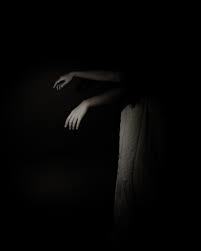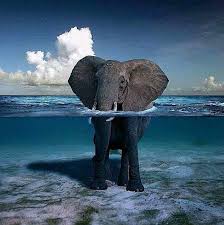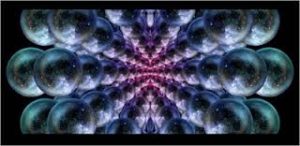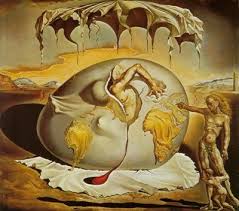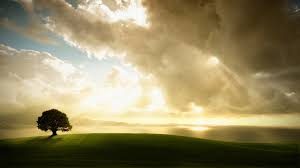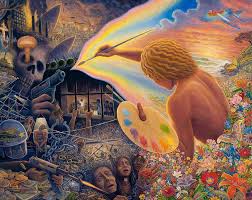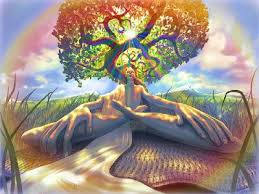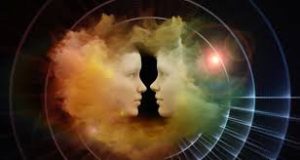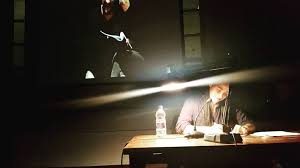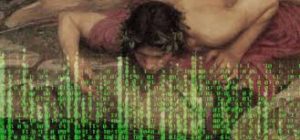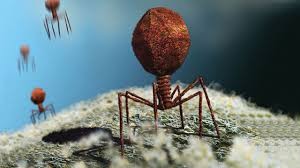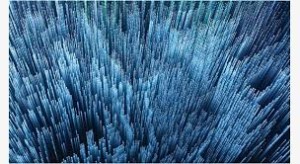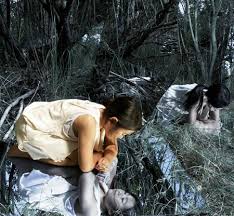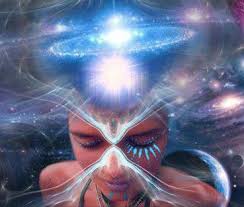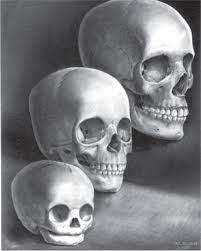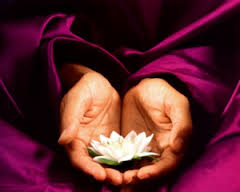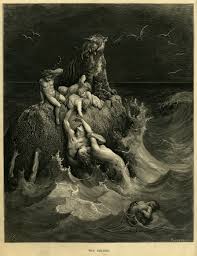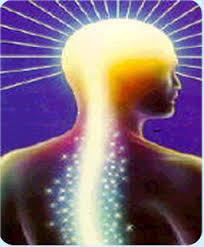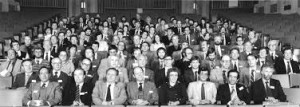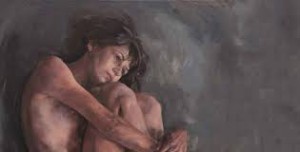Impulses coax the physical body and the mental person toward utilization of physical and mental power.
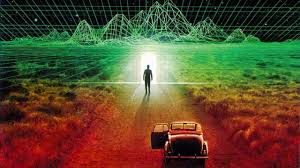
They help the individual impress the world — that is, to act upon it and within it effectively. Impulses also open up choices that may not have been consciously available before. The cells precognate, and that at that level the body is aware of vast information, information not consciously known or apprehended. The universe and everything within it is composed of “information,” but this information is aware-ized containing” — information concerning the entire universe is always latent within each and any part of it.
The motive power of the universe and of each particle or wave or person within it it the magnificent thrust toward creative probabilities, and the tension that exists, the exuberant tension, that exists “between” probable choices and probable events. This applies to men/women and molecules, and to all of those hypothetically theorized smaller divisions with which scientists like to amaze themselves. Divisions or units.
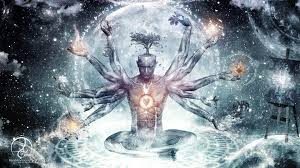
In more mundane terms, impulses often come from unconscious knowledge, then. This knowledge is spontaneously and automatically received by the energy that composes our body, and then it is processed so that pertinent information applying to us can be taken advantage of. Ideally, our impulses are always in response to our own best interests — and, to the best interests of our world as well. Obviously there is a deep damaging distrust of impulses in the contemporary world, as in our terms there has been throughout the history that we follow. Impulses are spontaneous, and we have been taught not to trust the spontaneous portions of our being, but to rely upon our reason and our intellect — which both operate, incidentally, quite spontaneously, by the way.
When we let ourselves alone, we are spontaneously reasonable, but because of our beliefs it seems that reason and spontaneity make poor bedfellows.

Psychologically, our impulses are as vital to our being as our physical organs are. They are as altruistic, or unselfish, as our physical organs are. And yet each impulse is suited and tailored directly to the individual who feels it. Ideally, by following our impulses we would feel the shape, the impulsive shape of our life. We would not spend time wondering what one’s purpose was, for it would make itself known to us, as we perceived the direction in which our natural impulses led, and felt oneself exert power in the world through such actions. Impulses are doorways to action, satisfaction, the exertion of natural mental and physical power, the avenue for our private expression — the avenue where our private expression interests the physical world and impresses it.
Many cults of one kind or another, and many fanatics, seek to divide us from our natural impulses, to impede their expression. They seek to sabotage our belief in our spontaneous being, so that the great power of impetus becomes damned up. Avenues of probabilities are closed bit by bit until we do indeed live — if we follow such precepts — in a closed mental environment, in which it seems we are powerless. It seems we cannot impress the world as we wish, that our ideals must always be stillborn.

In the case of the Jonestown tragedy, for example, all doors toward probable effective action seemed closed. Followers had been taught to act against their natural impulses with members of their families. They had been taught not to trust the outside world, and little by little the gap between misguided idealism and an exaggerated version of the world’s evil blocked all doors through which power could be exerted — all doors save one. The desire for suicide is often the last recourse left to frightened people whose natural impulses toward action have been dammed up — intensified on the one hand, and yet denied any practical expression.
There is a natural impulse to die on the part of men/women and animals, but in such circumstances [as we are discussing here] that desire becomes the only impulse that the individual feels able to express, for it seems that all other avenues of expression have become closed. There is much misunderstanding concerning the nature of impulses, so we will discuss them rather thoroughly. I always want to emphasize the importance of individual action, for only the individual can help form organizations that become physical vehicles for the effective expression of ideals. Only people who trust their spontaneous beings and the altruistic nature of their impulses can be consciously wise enough to choose from a myriad of probable futures that most promising events — for again, impulses take not only [people’s] best interest into consideration, but those of all other species.

I am using the term “impulses” for the understanding of the general public, and in those terms molecules and protons have impulses. No consciousness simply reacts to stimuli, but has its own impulse toward growth and value fulfillment. It seems to many of us that impulses are unpredictable, contradictory, without reason, the result of erratic mixtures of body chemicals and that they must be squashed with as much deadly intent as some of us might when we spray a mosquito with insecticide.
Often the insecticide kills more than the mosquito, and its effects can be far-reaching, and possibly have disastrous consequences. However, to consider impulses as chaotic, meaningless — or worse, detrimental to an ordered life — represents a very dangerous attitude indeed; an attempt that causes many of our other problems, an attempt that does often distort the nature of impulses. Each person is fired by the desire to act, and to act beneficially, altruistically, to practically put his stamp, or her stamp,upon the world. When such natural impulses toward action are constantly denied over a period of time, when they are distrusted, when an individual feels in battle with his or her own impulses and shuts down the doors toward probable actions, then that intensity can explode into whatever avenue of escape is still left open.

I am not speaking of anything like “repression,” as it is used by psychologists, but a far deeper issue: one in which the very self is so distrusted that natural impulses of any kind become suspect. We try to inoculate ourselves against ourselves — a nearly impossible situation, of course. We expect our motives to be selfish because we have been told that they are, and so when we catch oneself with unkind motives we are almost comforted, because we think that at least we are behaving normally.
When we find oneself with good motives, we distrust them. “Surely,” we think, “beneath this seeming altruism, there must indeed be some nefarious, or at best selfish, motives that escape me.” As a people we are always examining our impulses, and yet we rarely examine the fruits of our intellects.

It may seem that impulsive actions run rampant in society, in cultish behavior, for example, or in the behavior of criminals, or on the part of youth, but such activities show instead the power of impulses denied their natural expression, intensified and focused on the one hand into highly ritualized patterns of behavior, and in other areas denied expression.
A particular idealist believes that the world is headed for disaster, and that is powerless to prevent it. Having denied his or her impulses, believing them wrong, and having impeded his/her expression of his/her own power to affect others, he/she might, for example, “hear the voice of God.” That voice might tell him or her to commit any of a number of nefarious actions — to assassinate the enemies that stand in the way of his/her great ideal — and it might seem to him and to others that he/she has a natural impulse to kill, and indeed an inner decree from God to do so.

According to conditions, such a person could be a member of a small cult of the head of a nation, a criminal or a national hero, who claims to act with the authority of God. Again, the desire and motivation to act is so strong with each person that it will not be denied, and when it is denied then it can be expressed in a perverted form. Man and woman must not only act, but he must act constructively, and he or she must feel that he or she acts for good ends.
Only when the natural impulse is denied consistently does the idealist turn into a fanatic. Each person in his or her own way is an idealist.

Power is natural. It is the force, the power of the muscle to move, or the eye to see, of the mind to think, the power of the emotions — these represent true power, and no accumulation of wealth or acclaim can substitute for that natural sense of power if it is lacking. Power always rests with the individual, and from the individual all political power must flow.
A democracy is a highly interesting form of government, highly significant because it demands so much of individual consciousness, and because it must rest primarily upon a belief in the powers of the individual. It is a tribute to that belief that it has lingered in our country, and operated with such vitality in the face of quite opposing beliefs officially held by both science and religion.

The idea [of democracy] expresses the existence of a high idealism — one that demands political and social organizations that are effective to some degree in providing some practical expression of those ideals. When those organizations fail and a gulf between idealism and actualized good becomes too great, then such conditions help turn some idealists into fanatics. Those who follow with great strictness the dictates of either science or religion can switch sides in a moment. The scientist begins tipping tables or whatever, and suddenly disgusted by the limits of scientific knowledge, he/she turns all of his/her dedication to what he/she thinks of as its opposite, or pure intuitive knowledge. Thus, he/she blocks his/her reason as fanatically as earlier he/she blocked his/her intuitions. The businessmen or businesswoman who believed in Darwinian principles and the fight for survival, who justified injustice and perhaps thievery to his/her ideal of surviving in a competitive world — she/she suddenly turns into a fundamentalist in religious terms, trying to gain his/her sense of power now, perhaps, by giving away the wealth he/she has amassed, all in a tangled attempt to express a natural idealism in a practical world.

How can we trust our impulses when we read, for example, that a man or woman commits a murder because he/she has a strong impulse to do so, or because the voice of God commanded it? If some of us followed our impulses right now, for example — our first natural ones — it might seem they would be cruel or destructive.

How do our impulses affect our future experience, and help form the practical world of mass reality?
